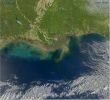If you love to travel around the world, then these following facts about Yukon may probably help and recommend you the best place for you to visit. Yukon is the westernmost and smallest of Canada’s three federal territories. Whitehorse is the territorial capital of Yukon. This Territory was named after the Yukon River. The word “Yukon” means “Great River” or “Big Stream” in Gwich’in. To get to know more about the territory, here are some other facts about Yukon you may like.
Facts about Yukon 1: Site
Sites of archaeological significance in Yukon hold some of the earliest evidence of the presence of human occupation in North America. The sites safeguard the history of the first people and the earliest First Nations of the Yukon.
Facts about Yukon 2: Religion
The largest denominations by number of adherents according to the 2001 census were the Roman Catholic Church; the Anglican Church of Canada; the United Church of Canada and the rest of them claimed no religion.
Facts about Yukon 3: Economy
Yukon’s historical major industry has been mining; lead, zinc, silver, gold, asbestos and copper. The government acquired the land from the Hudson’s Bay Company in 1870 and split it from the Northwest Territories in 1898 to fill the need for local government created by the population influx of the gold rush.
Facts about Yukon 4: Tourism
Yukon’s tourism motto is “Larger than life”. Yukon’s major appeal is its nearly pristine nature. Tourism relies heavily on this, and there are many organised outfitters and guides available to hunters and anglers and nature lovers of all sorts. Sports enthusiasts can paddle lakes and rivers with canoes and kayaks, ride of walk trails, ski or snowboard.
Facts about Yukon 5: Government and Politics
In the 19th century, Yukon was a segment of the Hudson’s Bay Company-administered North-Western Territory and then then the Canadian-administered Northwest Territories. It only obtained a recognizable local government in 1895 when it became a separate district of the Northwest Territories.
Facts about Yukon 6: Transportation
Before modern forms of transportation, the rivers and mountain passes were the main transportation routes for the coastal Tlingit people trading with the Athabascans of which the Chilkoot Pass and Dalton Trail, as well as the first Europeans.
Facts about Yukon 7: Culture
Although English is the main language used in the territory, as evidenced by the census, the Government of Yukon recognizes several aboriginal languages as part of the cultural heritage of the territory: the Tlingit, and the less common Tahltan, as well as seven Athapaskan languages.
Facts about Yukon 8: Sourdough
You can’t leave the Yukon without trying some sourdough: a fermenting mixture of flour, water, sugar and rice hung in a kettle over the wood stove. This beloved local food is celebrated in song and even in a cultural festival known as the Yukon Sourdough Rendezvous.
Facts about Yukon 9: Festivals
However, Yukoners don’t just celebrate sourdough: come visit during Dawson Discovery Days, Klondike Outhouse Races, the International Storytelling Festival, the Yukon Quest Dog Sled Race, or Dawson City Music Festival.
Facts about Yukon 10: Blue Fish Caves
The Blue Fish Caves have the earliest evidence of human habitation in North America. It is believed that humans habit this area for more than 14,000 years.
Those facts about Yukon should hopefully be one of your reasons to visit the city. One of the most beautiful things in Yukon is its history and lake. Hope those Yukon facts would be really interesting for you to read.










 www.PortlandPayday.Loans
www.PortlandPayday.Loans